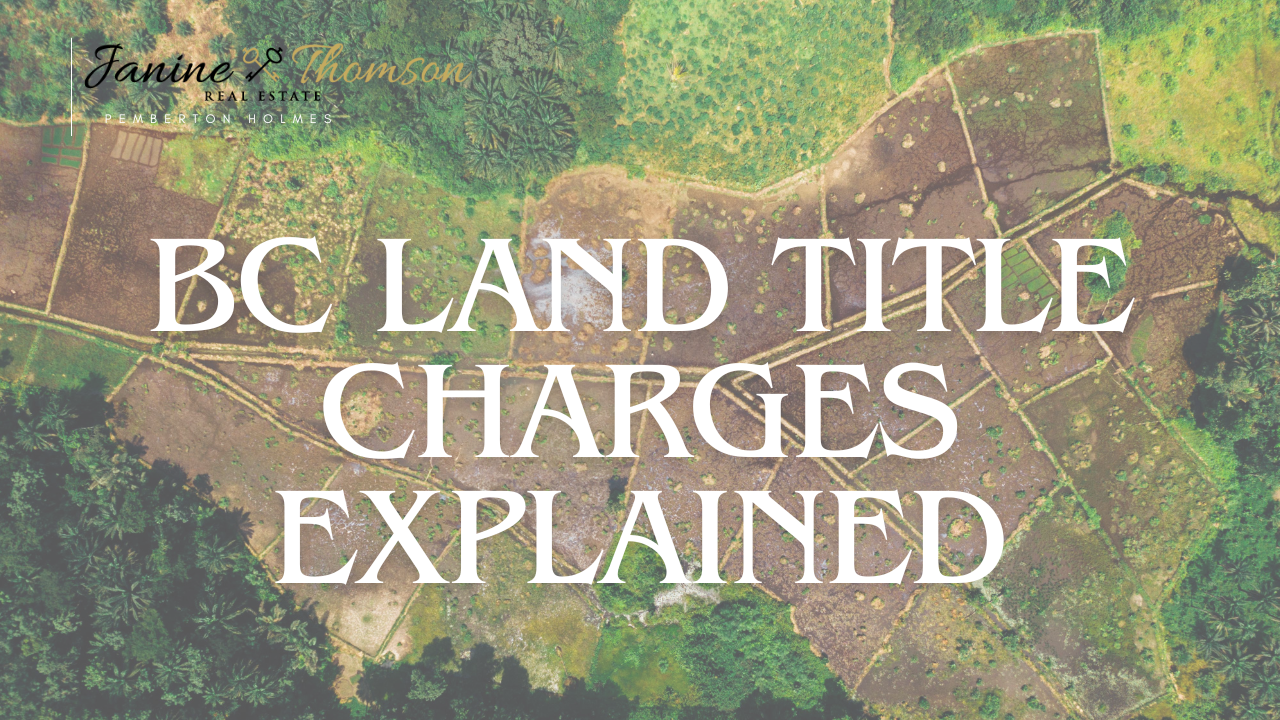

In British Columbia, land title charges refer to various legal interests, encumbrances, or rights associated with a property that are registered on the land title. These charges can affect the ownership, use, and transferability of the property. Here are some common types of title charges that may appear on a land title in BC:
- Mortgages: is a form of security interest that a lender (such as a bank or financial institution) holds over a property to secure repayment of a loan. The mortgage charge is registered on the land title to notify potential buyers and other interested parties of the lender's interest in the property.
- Easements: is a legal right to use or access a portion of another person's property for a specific purpose. Common types of easements include rights-of-way for utilities (such as power lines or water pipes), access rights (such as driveway access), or drainage rights. Easements are registered on the land title and typically run with the land, meaning they apply to successive owners.
- Restrictive Covenants: is a legal obligation or restriction imposed on a property owner that limits the use or development of the property in some way. Common examples include restrictions on building height, setback requirements, or use restrictions (such as prohibiting certain commercial activities). Restrictive covenants are registered on the land title and bind subsequent owners of the property.
- Builder's Liens: is a legal claim registered by contractors, subcontractors, or suppliers who have provided labor, materials, or services for construction or improvement work on a property but have not been paid. Builder's liens provide security for unpaid debts and can be enforced through legal proceedings to recover payment.
- Judgment Liens: is a legal claim registered against a property by a creditor who has obtained a court judgment against the property owner for an unpaid debt. Judgment liens can be registered on the land title to enforce payment of the debt, and they can affect the owner's ability to sell or refinance the property.
- Statutory Charges: are charges imposed by law or statute, such as tax liens or utility liens. For example, unpaid property taxes or utility bills can result in a statutory charge being registered against the property until the debt is paid.
- Leases: A lease charge is a legal interest granted by a property owner to a tenant, giving the tenant the right to occupy and use the property for a specified period in exchange for rent. Lease charges are registered on the land title and can affect the transferability of the property.
Disclaimer:
The information provided in these posts are for general purposes only. It is not written nor intended to provide legal advice or opinions of any kind. No one should act upon, refrain from acting, based solely upon the materials provided & recorded, or through any hypertext links and other general information, without first seeking appropriate legal and/or other professional advice.